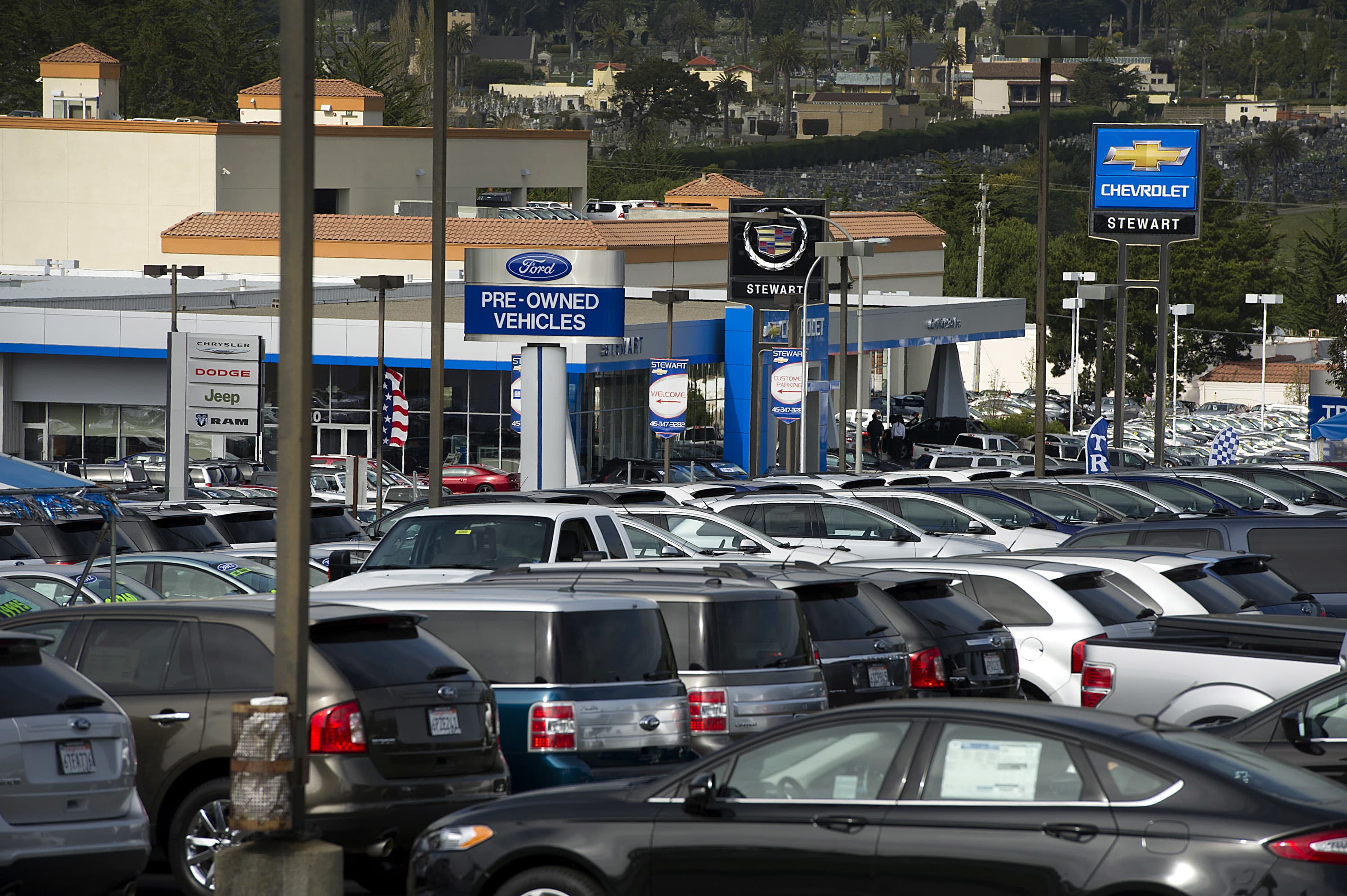David Paul Morris | Bloomberg | Getty Images
Wells Fargo is tapping the brakes on its auto loan business, CNBC has learned exclusively.
The bank, one of the biggest lenders for new and used car purchases in the U.S., sent letters to hundreds of independent auto dealerships last month telling them that the San Francisco-based company was dropping them as a customer, according to people with knowledge of the situation.
A Wells Fargo spokeswoman confirmed that the bank, which only makes auto loans through car dealerships, will no longer accept loan applications from most independent shops. Independent dealerships typically sell used cars, unlike franchise dealerships that focus on new vehicles from specific manufacturers.
The bank had “an obligation to review our business practices in light of the economic uncertainty presented by COVID-19 and have let the majority of our independent dealer customers know that we will suspend accepting applications from them,” Natalie Brown, the spokeswoman, said in an email. “The independent dealers we will continue doing business with are those with deep, long-standing relationships with Wells Fargo.”
The move follows Wells Fargo’s retrenchment from parts of the mortgage market as the coronavirus pandemic took hold in the U.S. The bank is operating under a dozen consent orders tied to its 2016 fake accounts scandal, and one of those orders, from the Federal Reserve, limits the bank’s ability to grow its balance sheet until it fixes compliance shortcomings.
That limitation stung Wells Fargo after the pandemic drove commercial clients to take billions of dollars in credit lines and loans, moves that strained the firm’s regulatory asset cap. CEO Charlie Scharf, a former acolyte of JPMorgan Chase CEO Jamie Dimon who joined in October to clean up the mess, noted last week in a conference call that the constraint “hasn’t been easy” on the bank.
“We’ve had to take substantial actions to get down below the cap,” Scharf said. “We’ve obviously not been able to grow. We’ve been there to serve customers who are longstanding customers who have committed facilities with us. But there are a bunch of things that we haven’t been able to do because the asset cap.”
Charles Scharf
Michael Nagle | Bloomberg | Getty Images
Still, the move was more related to concern about the credit quality of loans made by independent dealerships rather than the asset cap, according to a person with knowledge of the bank’s operations.
Before the pandemic took hold, Wells Fargo had actually been growing its auto lending business. The company revamped the unit in 2018 after paying a $1 billion fine to the Consumer Financial Protection Bureau for selling customers unnecessary auto insurance.
Since then, the company has steadily expanded the auto loans it held to $48.6 billion at the end of March, the bank’s second biggest category of consumer loans after mortgages. Auto loan origination climbed 19% in the first quarter to $6.5 billion, “reflecting our renewed emphasis on growing auto loans following the restructuring” of that business, the bank said in April.
Independent shops make up less than 10% of the 11,000 dealers Wells Fargo uses to sell auto loans, according to the person with knowledge of bank operations.
Wells Fargo has also been stepping back from parts of the mortgage market since the pandemic began this year. The bank told mortgage personnel that it was “temporarily” halting all new home equity lines of credit after April 30, CNBC first reported.
When analysts asked CFO John Shrewsberry in April why the bank was pulling back from the market, he said it was “one of the levers that we’re using to manage living under the asset cap” rather than concern about loan defaults.
